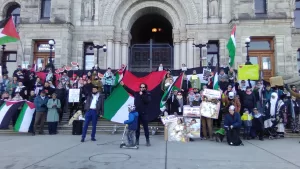Victoria Marches to Commemorate Stolen Sisters
The murder of indigenous women may be described as an invisible genocide, through which countless victims vanish into thin air, in widespread indifference.
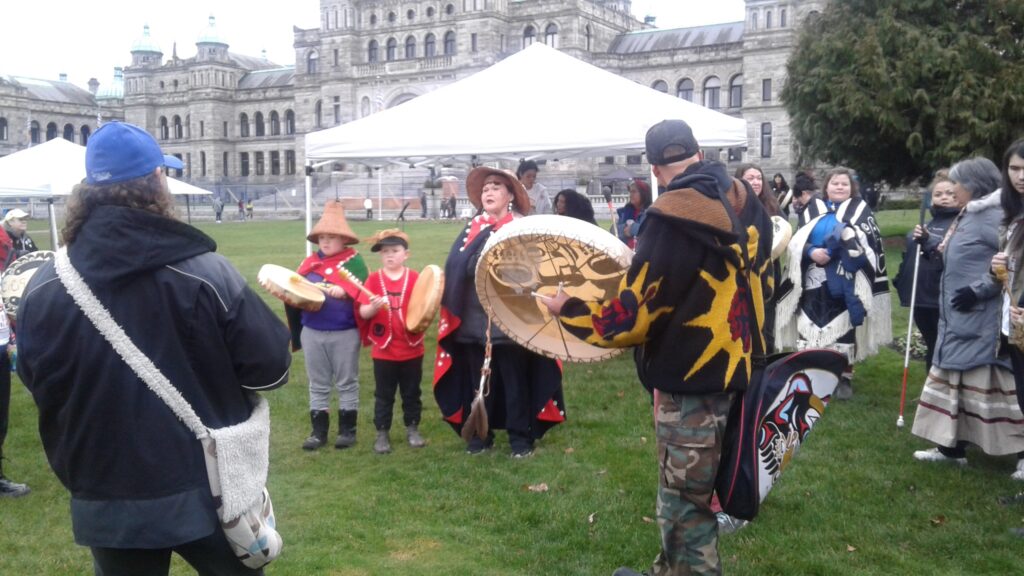
About 150 Victorians, indigenous and supporters alike, gathered before Our Place then walked all the way to the Legislative Assembly of British Columbia, denouncing the crimes and prejudice against those commonly referred to as Missing and Murdered Indigenous Women and Girls (MMIWG).
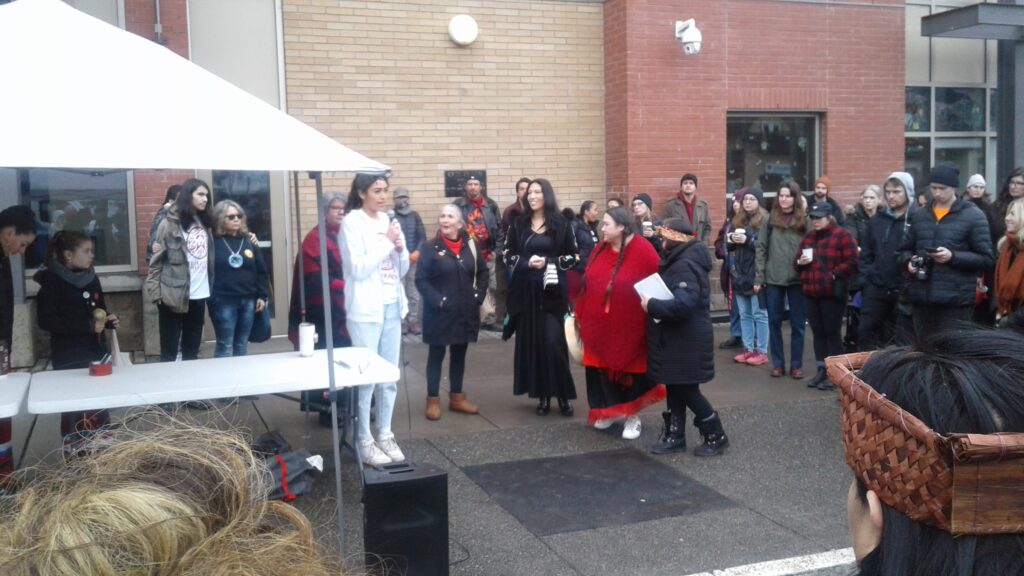
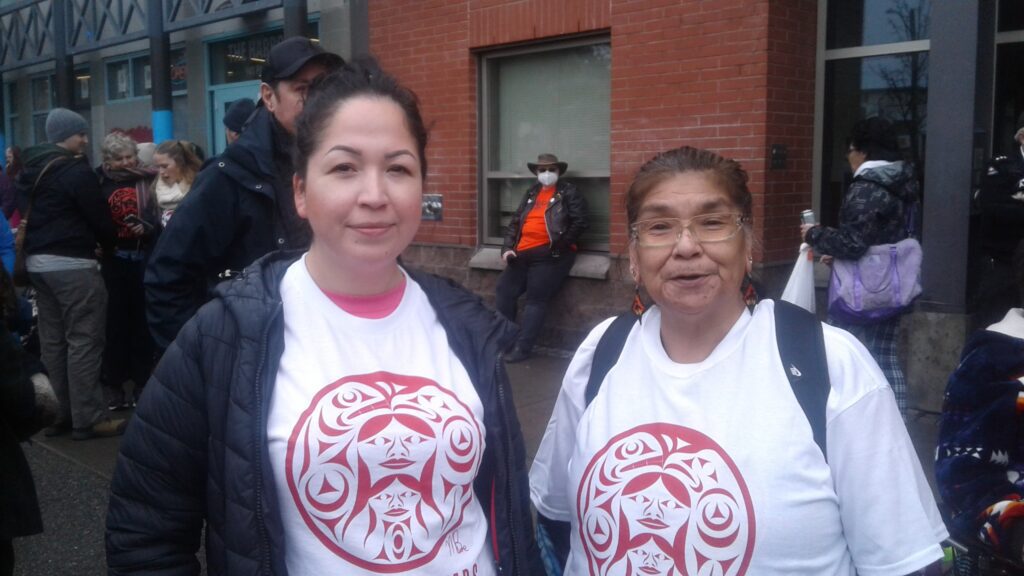
The Stolen Sisters March was organised by the local indigenous community with the help of Our Place Society. It started at about 12h20 after a brief introductory prayer, and proceeded down Government Street toward the Legislature.
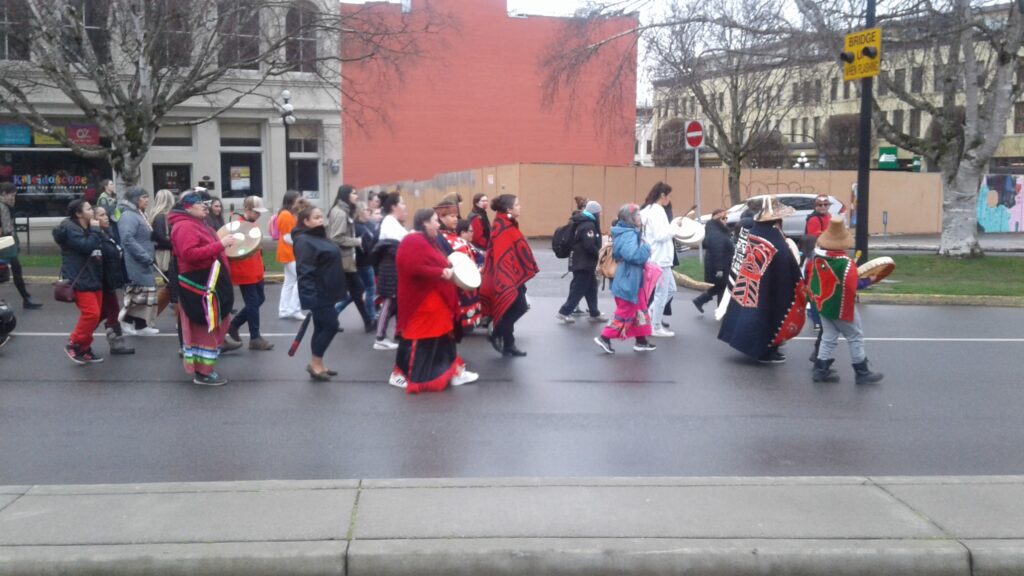
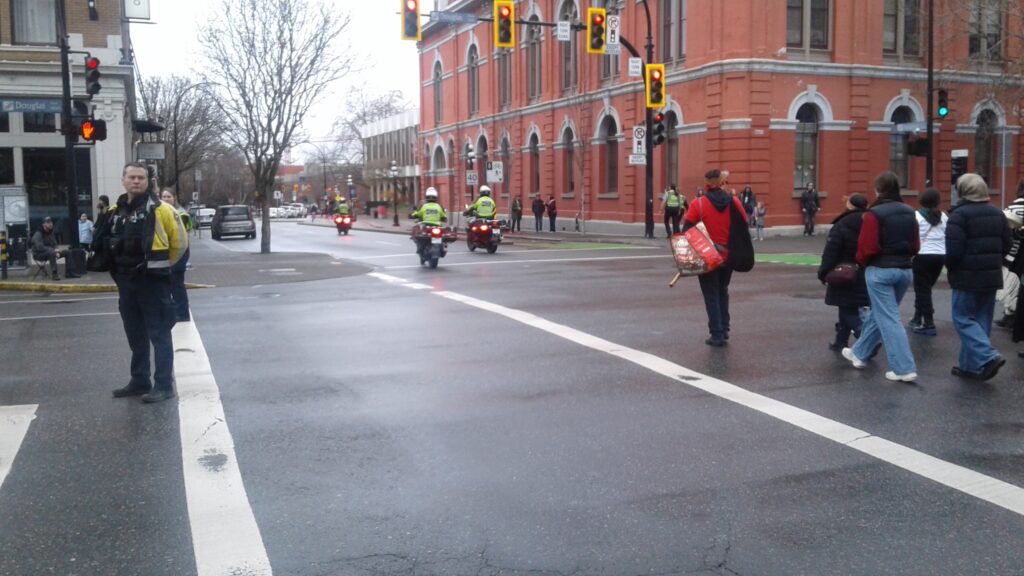
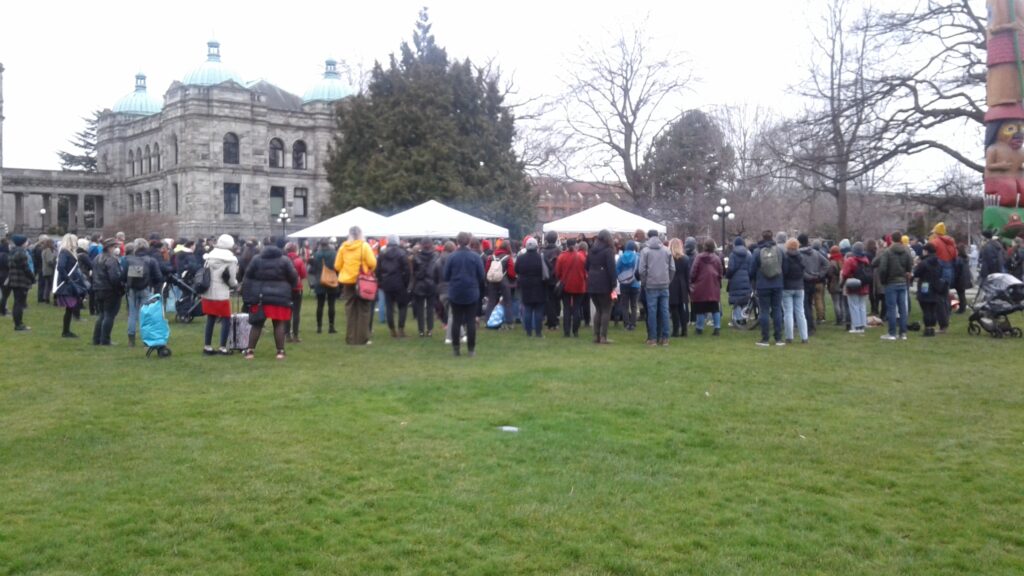
Multiple speakers came forward to express their frustration and sorrow toward what would be appropriately labelled a low-key genocide. Whereas the word ‘genocide’ usually evokes large crowds being marched toward mass graves, indigenous women instead disappear one at a time, often without drawing any attention to themselves, and it’s only by looking back at the cumulative death toll, or when stumbling upon mass graves, that we realise the horrific extent of the purge.
One of the speakers in particular lamented the delay in searching for the remains of Morgan Harris and Marcedes Myran, believed to lay in a Winnipeg landfill. The Brady landfill was recently the target of a protracted blockade by protesters who, if you will forgive me the crude paraphrasing, resented their government treating their people like literal garbage.
Another speaker reminded the crowd that the genocide wasn’t limited to serial killing, but also in less graphic yet just as horrifying acts, such as the forced sterilisation of indigenous women, which had been for long institutionalised and yet persists to this day in a more pernicious manner.
Today, the crowd marched and spoke to ensure the victims were neither denied nor forgotten, because the greatest threat today’s indigenous women face lies in society believing those crimes belong to the past—or that they never happened.
Discover more from Rulebreakers
Subscribe to get the latest posts sent to your email.

